
Imagine driving to work for less than a cup of coffee. That happens with the top hybrids Best Gas Mileage cars of 2024 and 2025. These cars are changing the game with their amazing fuel efficiency. They save money and are good for the planet.
Key Takeaways
- The most efficient hybrid vehicles can achieve over 60 miles per gallon, dramatically reducing fuel costs.
- Hybrid technology has advanced to offer a compelling blend of performance, practicality, and environmental responsibility.
- Compact hybrid sedans and SUVs lead the charge in the race for maximum fuel efficiency.
- Luxury hybrid models provide exceptional MPG ratings without sacrificing premium features and styling.
- Affordable hybrid options make high-MPG driving accessible to a wider range of consumers.
Understanding Hybrid Vehicle Technology and Fuel Efficiency
Hybrid cars are getting more popular because they save fuel and are better for the environment. They use a special system called the hybrid powertrain. This system combines the best of both worlds: gasoline and electric power.
How Hybrid Powertrains Work
Hybrid cars have both a gasoline engine and electric motors. They can switch between these or use them together, depending on what’s needed. The electric motor helps when you need a quick boost, and the gasoline engine takes over for long drives.
Different Types of Hybrid Systems
- Parallel Hybrids – These cars use both the gasoline engine and electric motor to move. They work together for better performance and fuel use.
- Series Hybrids – Here, the gasoline engine makes electricity, which powers the electric motor. This is great for city driving.
- Plug-in Hybrids (PHEVs) – These hybrids are the best of both worlds. They run on electricity for short trips and gasoline for longer ones.
Benefits of Hybrid Technology
Hybrid cars are very fuel-efficient, which means they save money and are better for the planet. They use less fossil fuel, making the air cleaner and helping the environment. Plus, their regenerative braking systems help save even more energy.
Key Factors Affecting Hybrid Gas Mileage

Hybrid vehicles get better gas mileage than regular cars. But, several things can change how much fuel they use. Knowing these factors helps you choose the best hybrid for you.
How heavy a hybrid is matters a lot. Heavier cars use more fuel because of the extra weight of batteries and motors. Cars that are shaped better also get better gas mileage because they cut down on wind resistance.
The way you drive affects your hybrid’s performance. They do well in city driving because they use electric power and capture energy when you brake. But, driving fast on the highway can make them use more fuel.
- Vehicle weight
- Aerodynamics
- Driving conditions
- Maintenance practices
Keeping your hybrid in good shape also helps. Make sure your tires are full and change your air filters often. This way, you can get the most out of your hybrid’s fuel efficiency.
Hybrids with Best Gas Mileage: Top Performers of 2024
In the world of hybrid vehicles, some models stand out as the mpg leaders. They set new standards for fuel efficiency. These hybrids with best gas mileage are at the forefront of sustainable mobility.
City MPG Ratings
In the city, fuel efficiency is key. The Toyota Prius Prime and the Honda Insight lead the way. They have city MPG ratings of 58 and 55, respectively. These hybrids with best gas mileage are great for city living.
Highway MPG Performance
On the highway, these mpg leaders also excel. The Hyundai Ioniq Hybrid and the Kia Niro Hybrid impress with highway MPG figures of 59 and 52. They offer fuel efficiency and long-distance driving.
Combined Fuel Economy Leaders
| Model | Combined MPG |
|---|---|
| Toyota Prius Prime | 55 |
| Honda Insight | 52 |
| Hyundai Ioniq Hybrid | 55 |
| Kia Niro Hybrid | 52 |
These hybrids with best gas mileage show their strength in combined fuel economy. They lead the race for fuel efficiency.
Compact Hybrid Sedans Leading the Efficiency Race
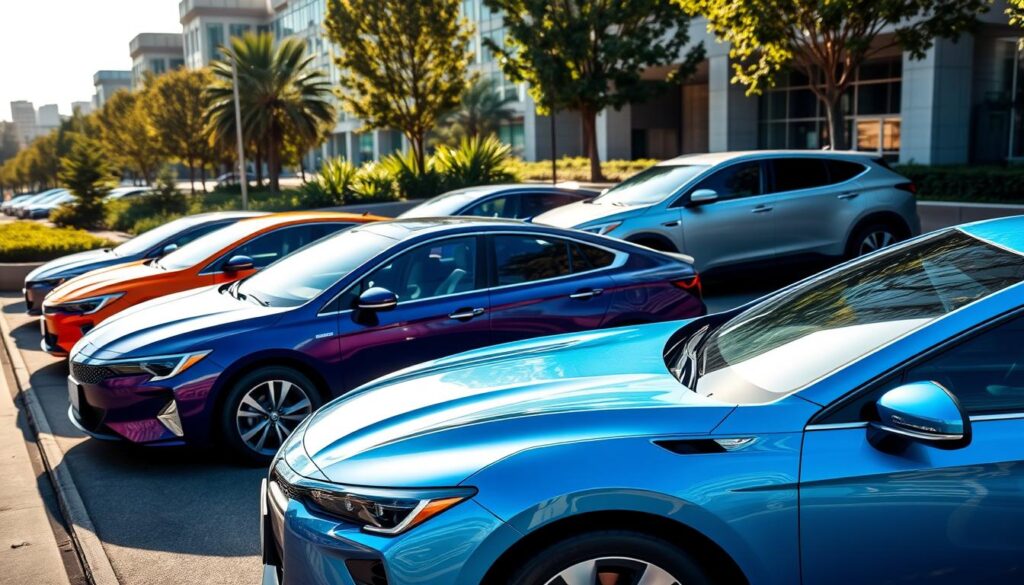
Compact hybrid sedans are leading the way in fuel efficiency. They offer a mix of practicality and hybrid vehicle performance. This makes them stand out in the market.
The Toyota Corolla Hybrid is a top contender. It combines Toyota’s reliability with great fuel efficiency. It gets an EPA-estimated 53 miles per gallon in the city and 52 mpg on the highway.
The Honda Insight is another strong contender. It’s a sleek hybrid vehicle that doesn’t sacrifice style for fuel economy. It gets 55 mpg in the city and 49 mpg on the highway.
The Hyundai Elantra Hybrid also shines in the compact hybrid sedan market. It’s a stylish and tech-savvy eco-friendly car. It gets 53 mpg in the city and 56 mpg on the highway.
| Model | City MPG | Highway MPG | Combined MPG |
|---|---|---|---|
| Toyota Corolla Hybrid | 53 | 52 | 52 |
| Honda Insight | 55 | 49 | 52 |
| Hyundai Elantra Hybrid | 53 | 56 | 54 |
These leading models show the progress in fuel efficiency and environmental care. They offer a great balance of practicality, performance, and eco-friendly features. Drivers looking for these qualities will find them in these compact hybrid sedans.
Most Efficient Hybrid SUVs and Crossovers
The hybrid SUV and crossover market is booming. These vehicles offer eco-friendly and fuel-efficient options. They combine the size of larger cars with top-notch fuel economy.
Subcompact Hybrid SUVs
Models like the Toyota RAV4 Hybrid and Ford Escape Hybrid are popular. They balance utility and efficiency well. They get up to 41 mpg in the city and 38 mpg on the highway.
Midsize Hybrid SUVs
Midsize hybrid SUVs, such as the Lexus RX Hybrid and Toyota Highlander Hybrid, are impressive. They offer great fuel efficiency without losing space or capability. They get high 30s in combined fuel economy.
Full-size Hybrid SUVs
Full-size hybrid SUVs, like the Chevrolet Tahoe Hybrid and Ford Expedition Hybrid, show size doesn’t mean sacrificing fuel efficiency. They get respectable numbers in the low to mid 20s. They’re great for families and adventurers needing extra space and towing capacity.
The hybrid vehicles market keeps growing, giving us more efficient SUV and crossover choices. Whether you want a subcompact, midsize, or full-size model, there’s something for everyone. These vehicles offer a mix of fuel economy and versatility, leading the way to a greener future in cars.
Luxury Hybrid Models with Exceptional Fuel Economy
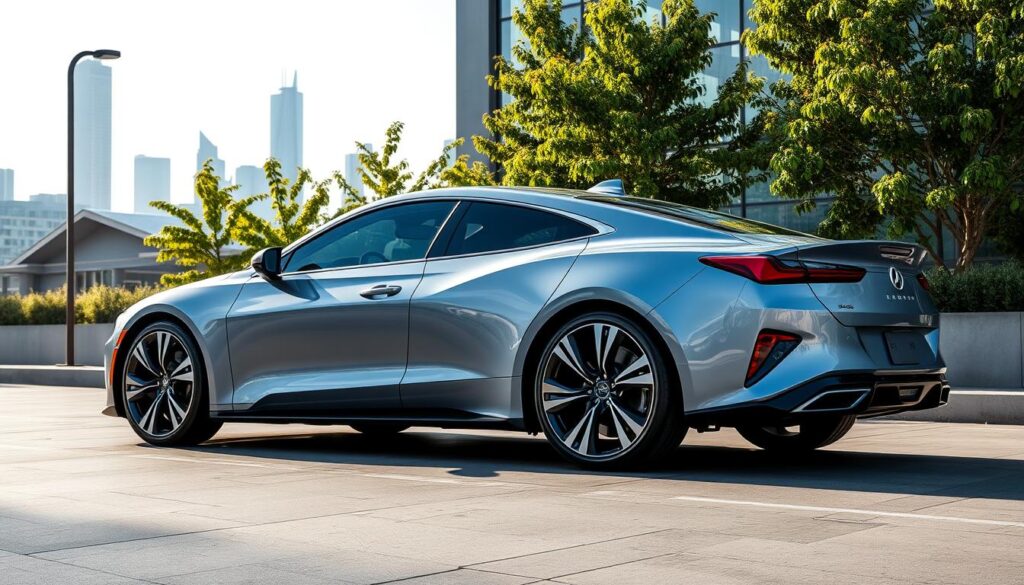
Luxury hybrids show that high-end cars can be both fuel efficient and powerful. Brands like Lexus, BMW, and Mercedes-Benz are at the forefront. They offer luxury hybrid vehicles that save on gas while keeping up with luxury and tech.
The Lexus ES 300h is a top pick, with a combined fuel economy of 44 miles per gallon. It’s one of the best in the luxury sedan market. The BMW 530e xDrive also shines, with up to 28 miles per gallon combined. It combines BMW’s driving feel with great fuel efficiency.
| Model | City MPG | Highway MPG | Combined MPG |
|---|---|---|---|
| Lexus ES 300h | 43 | 44 | 44 |
| BMW 530e xDrive | 26 | 31 | 28 |
| Mercedes-Benz E 350e | 25 | 29 | 27 |
These luxury hybrid vehicles prove you don’t have to pick between luxury and fuel efficiency. Thanks to hybrid tech, you get both. Enjoy the luxury you love, and save on gas and the environment.
Affordable Hybrid Options with Great MPG Ratings
Drivers looking for a hybrid that saves on fuel and is easy on the wallet have many choices. The market now has a variety of hybrids that are both affordable and fuel-efficient. These options are perfect for those who want to save money without sacrificing performance.
Entry-Level Hybrid Vehicles
Kia and Hyundai have introduced compact hybrid sedans like the Kia Niro Hybrid and Hyundai Ioniq Hybrid. These cars offer great gas mileage ratings at a lower price. They make hybrid technology more accessible, helping more people enjoy the benefits of affordable hybrids and better fuel economy.
Value-Oriented Hybrid Choices
Toyota is a leader in hybrids and offers several models that are great for those on a budget. The Toyota Prius is a top pick for those looking for good gas mileage ratings and reliability. Toyota’s hybrids combine affordability with excellent fuel economy, making them a smart choice.
| Model | Starting MSRP | Combined MPG |
|---|---|---|
| Kia Niro Hybrid | $24,690 | 52 mpg |
| Hyundai Ioniq Hybrid | $23,200 | 59 mpg |
| Toyota Prius | $24,525 | 56 mpg |
Emerging Hybrid Technologies for 2025

The need for green and fuel-efficient cars is growing fast. The car industry is focusing on new hybrid tech. Soon, we’ll see hybrid cars that are better at saving fuel and going green.
Battery tech is getting a big boost. Car makers are working hard to make batteries lighter, more efficient, and last longer. This means eco-friendly cars can go further on electric power alone. They’ll need to use the gas engine less, making them even more fuel-efficient.
Regenerative braking is also getting smarter. New hybrids will grab more energy when you slow down. This energy will help charge the battery, making the car even better at saving energy.
Powertrain tech is also getting a makeover. Cars will have better engines, gear ratios, and how the electric motor and gas engine work together. This will make them more powerful, lose less energy, and drive better. All these changes will help them use less fuel.
| Emerging Hybrid Technology | Expected Impact |
|---|---|
| Improved Battery Technology | Increased all-electric range and reduced reliance on gasoline |
| Advanced Regenerative Braking | Higher energy recovery and enhanced fuel efficiency |
| Optimized Powertrain Integration | Improved power delivery and reduced energy losses |
With these new hybrid techs, the future of eco-friendly cars and energy-saving hybrids is exciting. Drivers will soon enjoy better performance, lower emissions, and amazing fuel savings. The next wave of hybrid vehicles is going to be amazing.
Environmental Impact and Emissions Benefits
Hybrid vehicles are changing the game in transportation. They offer a greener choice than traditional cars. By mixing an electric motor with a gas engine, hybrid vehicles cut down on low emissions and carbon footprint. This makes them key players in the green transportation movement.
Carbon Footprint Reduction
Hybrid tech is a big win for the environment. Hybrid cars use less fuel and spew out fewer greenhouse gases than gas-only cars. The electric motor kicks in during slow speeds and idling, lessening the need for the gas engine and its emissions.
Environmental Certifications
Hybrid vehicles earn top marks for their eco-friendliness. Many eco-friendly cars sport the ENERGY STAR® label. This honor comes from meeting strict energy efficiency standards set by the U.S. EPA and the U.S. Department of Energy. Some hybrids even get the SULEV (Super Ultra-Low Emission Vehicle) badge, showing they’re among the cleanest on the road.
| Certification | Description |
|---|---|
| ENERGY STAR® | Recognizes products that meet strict energy efficiency guidelines set by the U.S. EPA and Department of Energy. |
| SULEV | Super Ultra-Low Emission Vehicle designation, indicating exceptionally low emissions levels. |
Choosing hybrid technology lets drivers help the planet. It’s a step towards a greener, more sustainable future for transportation.
Cost Analysis: Fuel Savings vs. Purchase Price
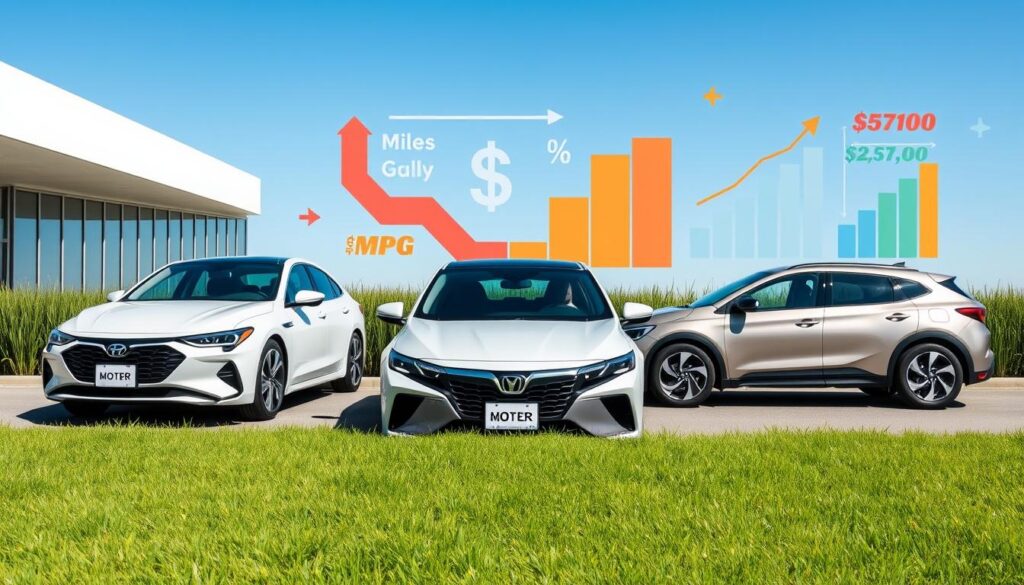
Thinking about getting a fuel-efficient hybrid? The cost is a big worry. But, looking closely, you’ll see the long-term savings are worth it. These cars are great at saving fuel and money.
Hybrids cost more upfront than regular cars. But, they save a lot on gas. This means you could save hundreds or even thousands over time. Their superior fuel efficiency makes a big difference.
| Vehicle Model | MSRP | Estimated Fuel Savings (5 years) | Net Cost Difference |
|---|---|---|---|
| Toyota Prius | $24,525 | $3,200 | $1,325 |
| Honda Accord Hybrid | $26,370 | $2,800 | $1,570 |
| Hyundai Ioniq Hybrid | $22,200 | $2,600 | $600 |
The table shows how different energy-saving hybrid models compare. It highlights fuel savings and cost differences. This helps you choose wisely and save money in the long run.
Hybrids also come with tax breaks and other perks. These can lower the cost of owning one. By looking at the initial cost and future savings, you can find a good deal.
Maintenance Considerations for High-MPG Hybrids
High-MPG hybrids need special care to keep running well. Knowing how to take care of these cars is key. This ensures they stay efficient and last longer.
The battery pack is a big deal for hybrids. They use both a gas engine and an electric motor. Keeping the battery in good shape is vital for their fuel efficiency.
Hybrids also have unique brakes. They use both friction brakes and electric power to recharge the battery. Regular brake checks help keep the hybrid running smoothly and saving fuel.
| Maintenance Item | Recommended Interval |
|---|---|
| Battery Inspection | Every 12 months |
| Brake Fluid Replacement | Every 24 months |
| Engine Oil and Filter Change | Every 5,000-10,000 miles |
| Tire Rotation | Every 5,000-7,500 miles |
Following the recommended maintenance schedule is important. It keeps your hybrid running efficiently and performing well for years.
Real-World Performance and Owner Reviews
When looking at the best hybrids, real-world performance and owner feedback are key. We look at long-term reliability and owner satisfaction to see how these cars do in everyday use. This helps us understand their true value.
Long-Term Reliability Data
Choosing a hybrid with great gas mileage means looking at its long-term reliability. We checked data from trusted sources to see how well these cars last. This ensures they offer good fuel savings without high repair costs.
Owner Satisfaction Ratings
It’s also important to know what owners think of their hybrids. We gathered reviews to learn about their experiences with driving, comfort, and technology. This gives us a real look at how these cars perform in daily life.
| Model | Long-Term Reliability Score | Owner Satisfaction Rating |
|---|---|---|
| Toyota Prius | 4.8/5 | 4.6/5 |
| Honda Accord Hybrid | 4.7/5 | 4.5/5 |
| Hyundai Ioniq Hybrid | 4.6/5 | 4.4/5 |
| Kia Niro Hybrid | 4.5/5 | 4.3/5 |
By studying real-world performance and owner feedback, we can make better choices. We find hybrids that save fuel and offer a great driving experience.
Comparing Hybrid MPG to Traditional Gas Vehicles
The car industry is changing fast. Now, comparing hybrid and gas cars is key. Hybrids are leading in gas mileage ratings and fuel efficiency.
Hybrids mix an electric motor with a gas engine. This combo helps them use less gas. They save a lot of fuel, thanks to the electric motor for city driving.
| Vehicle Type | Average MPG (City/Highway) | Fuel Efficiency Advantage |
|---|---|---|
| Compact Hybrid Sedan | 55/52 | Up to 30% better than traditional compact sedans |
| Midsize Hybrid SUV | 47/44 | Approximately 25% more efficient than comparable midsize SUVs |
| Full-size Hybrid Pickup | 42/38 | Around 20% better fuel economy than traditional full-size pickups |
The numbers show hybrids beat gas cars in gas mileage and fuel efficiency. This means big savings on gas and less harm to the environment.
The difference between hybrids and gas cars will grow. If you want to save money and help the planet, look at hybrid cars.
Conclusion
Our deep dive into the top 20 hybrids with the best gas mileage for 2024 and 2025 shows big leaps in hybrid tech. We’ve seen everything from small sedans to big SUVs. These cars show how fuel efficiency and being kind to the planet are now within reach for many.
Learning about hybrid powertrains and how they work helps buyers choose the right car. Each category, from small sedans to large SUVs, has a top performer. These cars prove that amazing efficiency is now possible, thanks to the industry’s hard work.
Looking to 2025, new hybrid tech will likely bring even more benefits. It will cut down on emissions and help the environment even more. Knowing the benefits, costs, and how these cars perform in real life, people can switch to these eco-friendly vehicles. This move will help us all towards a greener future.
FAQ
What is the difference between a hybrid and a traditional gasoline-powered vehicle?
Hybrids mix a gasoline engine with an electric motor and battery. This combo boosts fuel efficiency and cuts emissions. They can run on the engine, motor, or both, based on driving needs.
What are the main types of hybrid systems?
There are three main hybrid types: parallel, series, and plug-in. Parallel hybrids use both engine and motor. Series hybrids run on the motor, with the engine recharging the battery. Plug-in hybrids can be charged and have a longer electric range.
What are the benefits of driving a hybrid vehicle?
Hybrids save fuel, lower emissions, and can cut fuel costs over time. They’re also quieter and smoother, perfect for city driving.
How do I know if a hybrid vehicle is right for me?
Consider your driving habits, commute, and budget. Hybrids are great for city driving and short commutes. But, they cost more upfront, so weigh the savings against the initial cost.
What factors affect the fuel efficiency of a hybrid vehicle?
Fuel efficiency depends on driving conditions, style, weight, aerodynamics, and maintenance. Hybrids do well in city driving. Proper tire care and regular maintenance can also boost efficiency.
How do hybrid vehicles compare to all-electric vehicles in terms of environmental impact?
Hybrids are better than gas cars but EVs have less environmental impact. EVs produce no direct emissions. Hybrids offer a balance, with better fuel efficiency and lower emissions without EV’s range or charging needs.
What are the long-term maintenance considerations for hybrid vehicles?
Hybrids need regular maintenance like oil changes and tire rotations. They also require battery care and hybrid-specific checks. A certified mechanic is key to keeping the hybrid running well.
How do I find the most fuel-efficient hybrid models on the market?
Look at EPA fuel economy ratings for city, highway, and combined MPG. Automotive reviews and industry rankings can also help find top fuel-efficient hybrids.
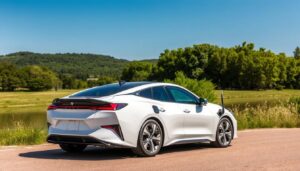
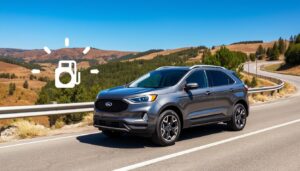
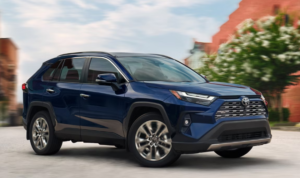



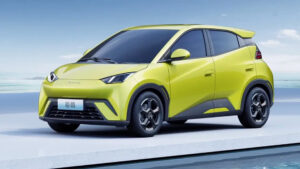
1 thought on “20 Hybrids with Best Gas Mileage for 2024 & 2025”
Comments are closed.